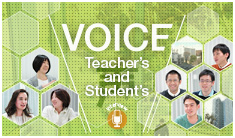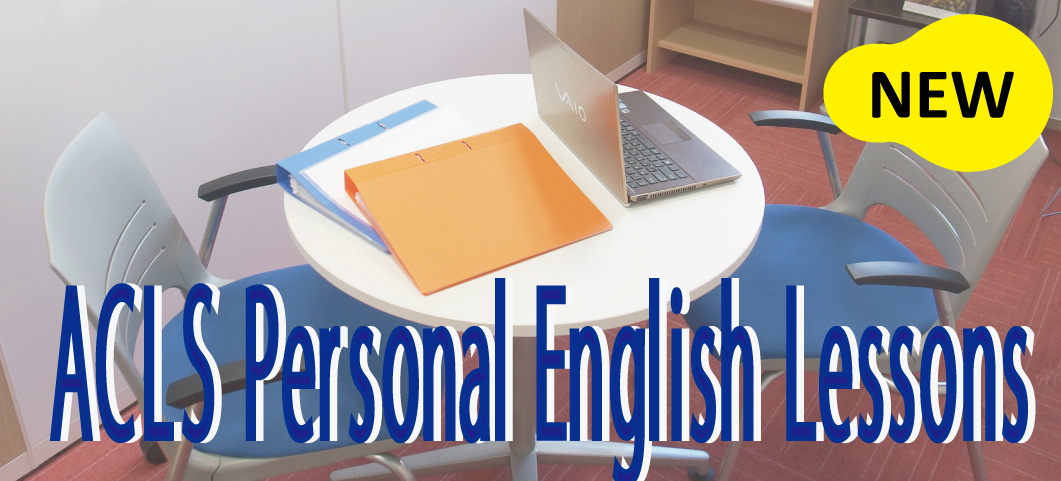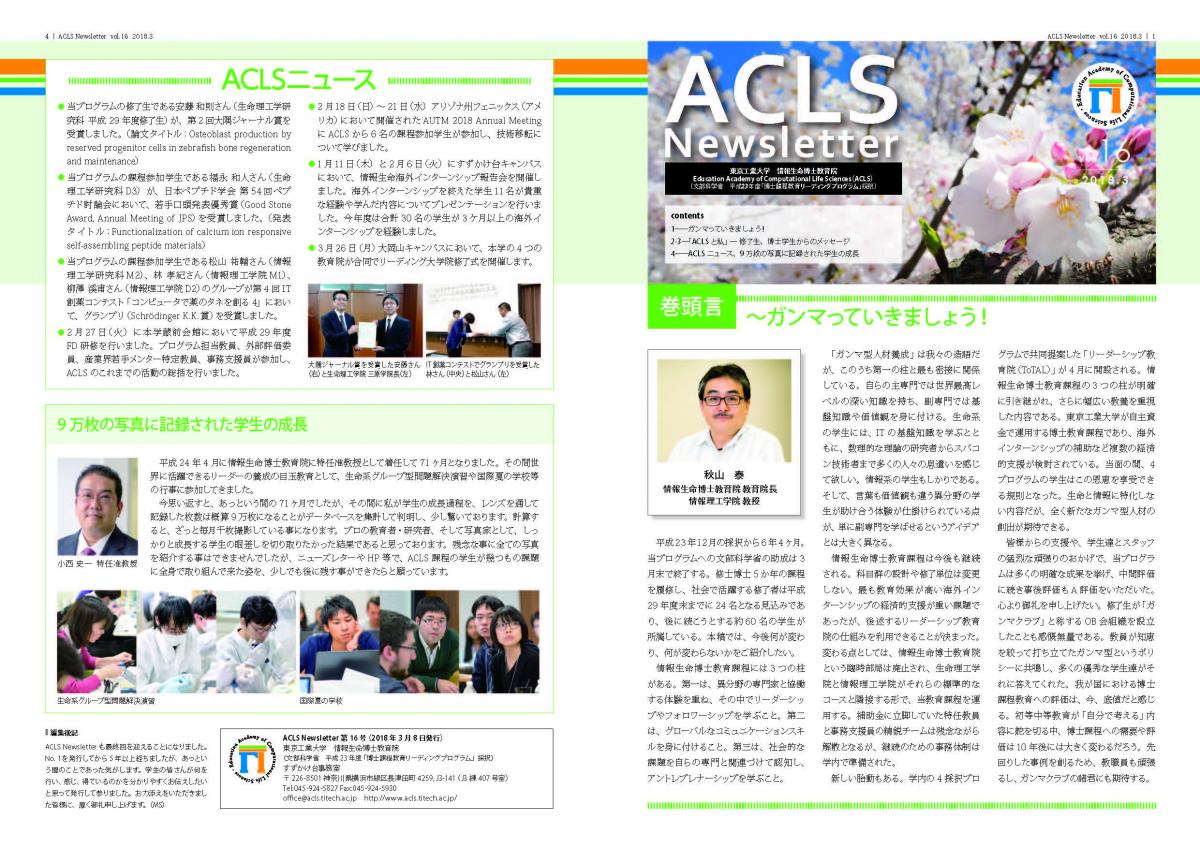- Home
- Teacher's and Student's voice
- Shumpei Tateno / Keisuke Yanagisawa
Shumpei Tateno / Keisuke Yanagisawa


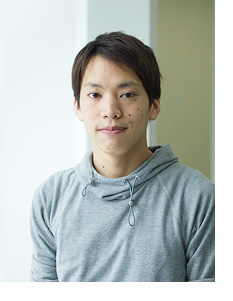
Tateno:I am studying Life Sciences and my current research has been focused on anti-cancer drugs. We’re working with drugs like pomalidomide which was approved just recently in Japan. It’s derived from a drug called thalidomide, and it’s gaining attention as a potential treatment for multiple myeloma, which is a disease that is very difficult to treat.
There were two reasons that I became interested in ACLS and decided to join. The first was that I wanted to gain the knowledge and techniques of the current trend in the Life Sciences, the analysis of “big data.” The second is that I didn’t want to limit myself to just one field, I didn’t want to become the kind of hard-headed person who stays locked up inside the same lab forever.
Yanagisawa:I am majoring in Information Engineering, but would say that I’m similar to Tateno because my research has been focused in medicine. We run simulations to predict which compound can bind to the target protein structure, and we make calculations to estimate how stable those bound structures will be. My research involves about developing these techniques.
I joined ACLS because I wanted to expand the scope of my research while using my personal strengths. Since I was an undergraduate, I’ve studied in the field of Information Engineering. But when I think about the future, I don’t think Computer Science alone will be adequate enough for survival. I think there will be an increasing need and opportunity to integrate it with other fields like Life Sciences, Chemistry and Physics. I wanted to become someone who could stand between different academic fields and fill in the gaps. Actually, when I was in high school, I loved chemistry and was fascinated by the subject. ACLS is an environment where I can do research with Computer Science while incorporating my love for chemistry. I thought it would be both challenging and interesting.

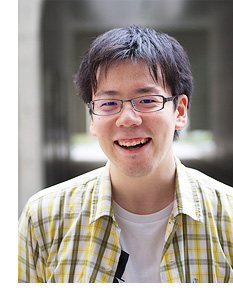
Tateno:It’s true that time can be tight, and I was concerned about that issue. However, the goal of ACLS isn’t to produce Π-type scientists (pi-type: in-depth studies in two fields of specialization), its goal is to produce Γ-type scientists (gamma-type: in-depth studies in one field of specialization while accumulating knowledge from other fields). Since I majored in Life Science and have been doing Life Science for a long time, I didn’t think my brain could handle an additional field like Computer Science. Gamma-types don’t study Computer Science in depth, but instead they gain an adequate knowledge to have relevant discussions. I imagined, “In these cases, I figured that I should be able to handle it.
Yanagisawa:Computer Science and Life Science are two majors that are very different, in that they use very different vocabulary and have various different thinking strategies. So there are cases when the conversation falls apart during a topical discussion. I strongly feel that I want to become someone who can fill the gap between both the opposing sides. So by studying multiple fields at ACLS, I would say that more than apprehension, it was more like, “Let’s do this.” There wasn’t a barrier. The demand for specialists who can hover between Computer Science and Life Science are only going to become more important. And to the present, there were very few people who could do this. So I feel that there is a significant importance in working towards this situation. Actually, I recognize it as an opportunity.
Tateno:To be honest with you, at first the idea of “creating gamma-type scientists” had little impact on me (laughs). But that is exactly what the ACLS program is hoping to achieve, and I believe that gamma-type scientists are going to be in growing demand.

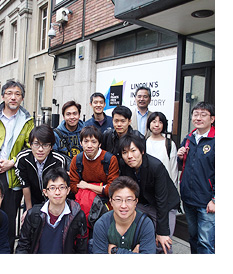
Tateno:ACLS provides many opportunities for collaborative work and discussion to stimulate students to develop skills and gain knowledge. One example is the “Creative Collaboration Works”. It’s a classroom practice activity done in small groups of about 5 people, but the topics vary between Computer Science or Life Science. If the exercise topic is Computer Science, a Life Science person like me could ask things I don’t know, and I can learn a lot. Then when it’s a Life Science topic, it’s the students from Computer Science that turn to ask questions. In these situations, speakers must keep their explanations as clear as possible so other people can understand. It’s quite the experience. By joining this program, I’ve learned to communicate with an Computer Science guy like him (Yanagisawa) without difficulties.
Yanagisawa:The Life Science people and the Computer Science people were already aware of collaborating on a topic. And I think that both sides wanted to fully understand each other’s position. But it was only after they began to create these opportunities that efforts were made to achieve mutual awareness.
ACLS has provided an initiative to take the first step, and I think that’s significant. There’s not just the “Creative Collaboration Works”, the entire program has been arranged that way. For example, the topics in our English lessons have content from both Life Science and Computer Science. During class we try our best to speak in English, and when it’s over we ask each other in Japanese, “So, what exactly did that mean?” and as a result communication naturally increases between students. We share our vocabularies and thinking strategies throughout our experience.

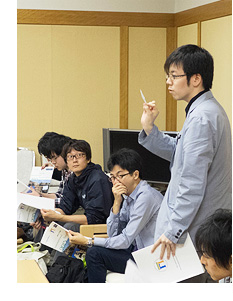
Yanagisawa:That’s right. There are many opportunities outside of class to have discussions with other students and while making something together. For example, during Summer School, students are required to do a lot of individual preparation, and it must be accomplished in English. From making display boards for the poster session, and holding planning meetings to decide on teachers to invite, to gathering items required for group work. We divided into committees to get our prep work done. I think that learning how to communicate is one of the most important learning experiences. Even if you don’t want to, you won’t get anything done unless you communicate with other people (laughs).
Tateno:There are also opportunities to learn about connections between research and business. One of the ACLS course that had a great impact on me was the “Introduction to Business Plan”. The theme was “What future business ventures could be possible using current technology?” There were between 20 and 30 of us thinking together, and we presented our ideas in a contest format. I felt that it would be very difficult to apply research in a business, and the start-up company researchers that gave lectures all stated that they would have failed without outside help. Hearing those comments was a significant turning point for me. After participating in that event, I now have a strong desire to help a university-based venture to succeed.
There was also group work at my ACLS-arranged short-term internship. While we were at Fuji Xerox, we had to think of potential future businesses using company technology and then give presentations. The topic was related to information system, so the Computer Science students that were attending with us took the lead. This situation was a great chance to have plenty of discussions on a variety of topics and encourage mutual information exchange.
Yanagisawa:Talking about global experiences, I was impressed by the Nobel workshop I attended in Sweden in May, 2015. It was a lecture series event to listen to Nobel Prize recipients, and other pioneering scientists who were potential candidates to receive a Nobel Prize. Unfortunately, I could barely understand the lectures in English (laughs). This happened even after I vowed to improve my English skills due to difficulties I experienced in Summer School. It was then that I realized that I really, really needed to work harder at making improvements. As students we run up against walls, and we work together with our classmates to improve. I think that ACLS has a lot of opportunities to experience these situations again and again.

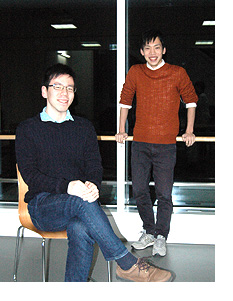
Tateno:I believe that my end-goal is to find a job that brings university research into society. An approach that I’d like to use would be to accomplish this goal in a role that supports activities from the business side. I strongly believe that if I was in this position, I would need extensive academic knowledge to recognize potentially interesting research. The things I have learned at ACLS, I mean gamma-type learning, will be an advantage.
Yanagisawa:I have not yet decided whether to remain in a university or go to a company following my graduation. But I really want to do something that brings my current research now into society. Either way, I believe that concepts I’m studying now, like fundamental knowledge about Life Science and those I’m learning in the ACLS program, will be beneficial in the future. I am convinced that we’re moving from an era when the knowledge and methods of Computer Science were adequate as standalone disciplines, into an era where a combination of “Computer Science + Something” will be necessary. At ACLS I have experienced talking with a diverse group of people on a large variety of different ideas. All of my knowledge will prove to be useful even if I end up being employed in a Computer Science-only company.
Tateno:I would prefer to be assigned to more in-depth programming exercises at ACLS. Once I start working somewhere, I won’t have time to try out new things, so I’d like to tackle some of these tasks while I’m still a student. In addition, I’d also like to have a little more fun working on collaborative problem-solving exercises with friends I have met through the ACLS program. Right now, I’m still young and energetic so I want to learn as much as I possibly can.
※The contents of this article are accurate as of the time the interview was conducted in December 2016.






